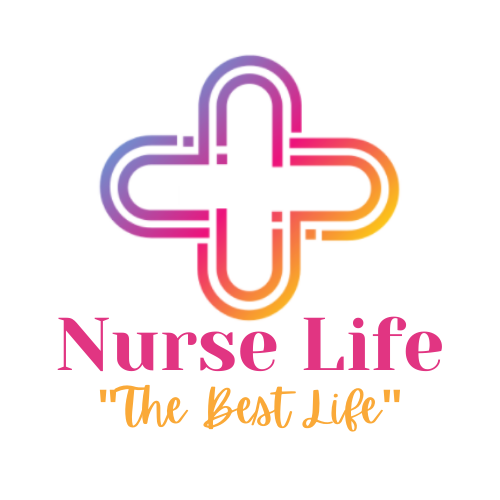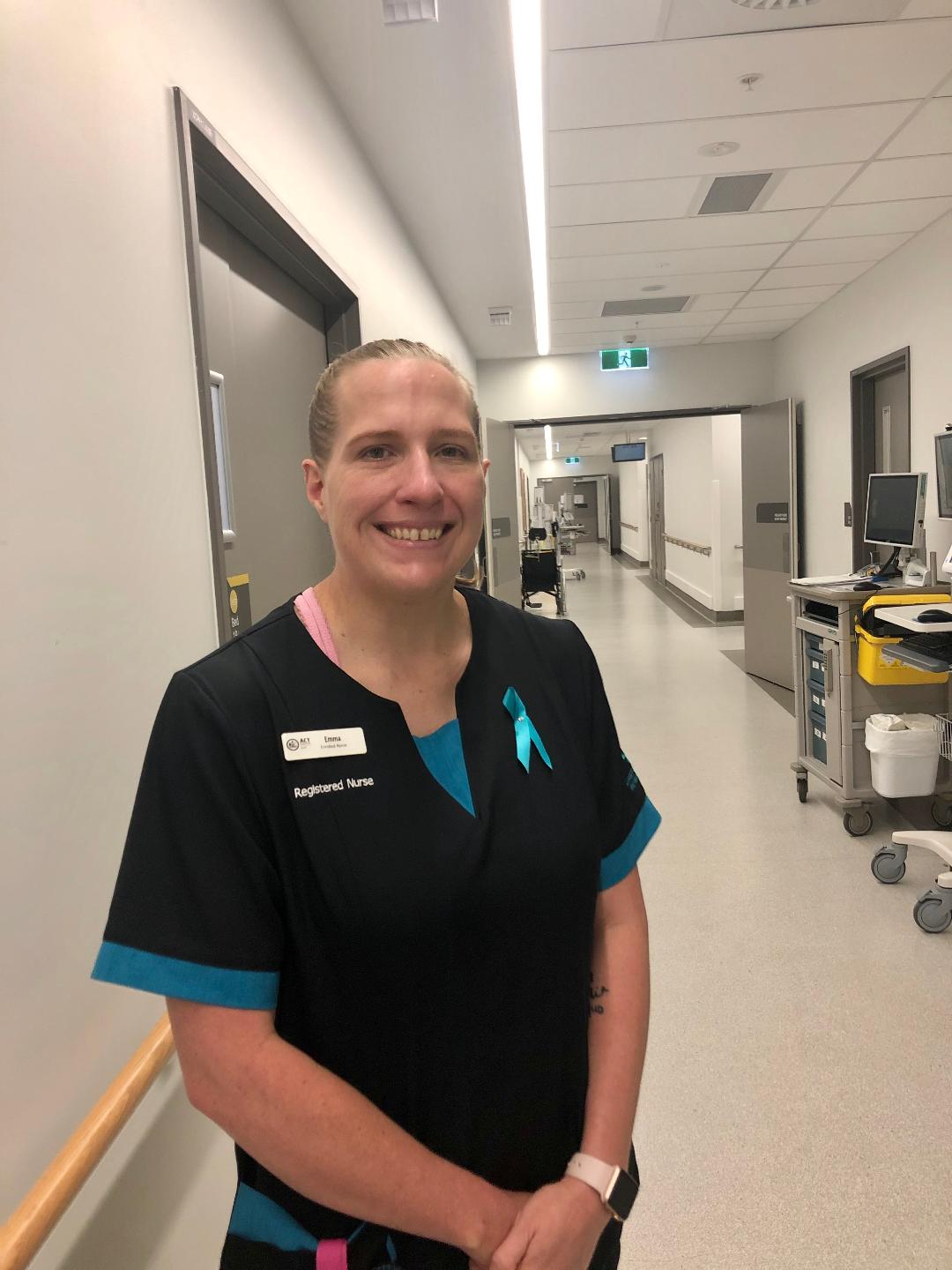
About me
I’m a Registered Nurse, avid scuba diver, returned service person and ovarian cancer survivor.
In 2011 I had completed a middle east deployment on HMAS Stuart as a RADAR and SONAR operator. I had booked and paid for a Contiki tour for the end of the year. Towards the end of the year, I had started noticing some unusual symptoms. I had changes in bowel habits, frequent urination, bleeding in between my periods and most noticeably, a palpable mass in my lower abdomen. I went to my GP with these symptoms and was sent for a pelvic ultrasound and then abdo pelvic CT. I went to see a gynaecologist shortly afterward. It was suspected that I had a pedunculated fibroid. My pre-operative bloods indicated an elevated CA125 (typical ovarian cancer tumour marker, but also elevated in fibroids) and a significantly elevated LDH (lactate dehydrogenase – a test in the liver function tests). I went into surgery on 1 December 2011. My Contiki trip was therefore off. I had a c-section type incision along with PCA, IDC and drains. I discharged a few days after surgery. I barely remember my surgeon coming in and stating it went well. I learned later that the mass had consumed my left ovary, so that along with my left fallopian tube was removed. Also removed was some omentum, lymph nodes and my appendix. I remembered joking with my friends post operatively saying ‘at least it’s not cancer’. I went to mums to recover when almost a week after surgery, I received a phone call that would change my life forever. I was at home, alone with my birds when my gynaecologist called. He called to inform me that I had ’Malignant Ovarian Dysgerminoma’. My heart sank upon hearing the word ‘malignant’. My gynaecologist told me that it was the ‘good’ cancer to have. I might not even need chemo. The first person I told was my mum. Who was working in aged care at the time. She was at her work Christmas party. She found it hard to maintain composure after being told that her daughter had just found out that she has cancer.
I made trips to and from a specialist in Sydney. I was told that I had stage 3A Ovarian Dysgerminoma and that my prognosis was good. At that stage, I was told that I didn’t require any further treatment. I then went to my medical oncologist here in Canberra who told me what the specialist said.
On 22 December 2011 (a month before my 25th birthday) I received another life-changing phone call from my specialist. I was told that I needed adjuvant chemotherapy. I went to the cancer outpatients ward the following day. I was informed by my medical oncologist my appointments, chemo regimen and given an information sheet about my chemo. None of it sank in as I was still in disbelief of what was happening. Mum and I walked into the treatment room and cried. My reality was so far removed from what it was meant to be. I was meant to be enjoying life on a Contiki trip, but instead I was going to commence cancer treatment. I was soon going to be bald, unwell and connected to an IV pump.
I started the first of 3 cycles of BEP chemo on 27th December 2011. I had the full chemo experience. Alopecia, dysgeusia, fatigue, isolation, exhausted veins. I had a febrile neutropenia scare too. It was just a reaction to one of the chemo drugs. I finished chemo mid February 2012. I returned to work at part time capacity, eventually resuming full time.

About a year after my cancer diagnosis, I got my Open Water Certificate for SCUBA diving. Diving reminds me that the chemo drugs didn’t affect my ability to enjoy life. I’ve since reached the highest level of recreational scuba diving.
I left the navy in 2014 and commenced my journey to become a nurse. At the end of 2019, I completed my bachelor of nursing. I am currently working in rehabilitation nursing.
What did I learn?
I learned about ovarian cancer first hand. I learned how scary a cancer diagnosis is. I learned how awful chemotherapy is, even for a young person. I learned that cancer is so isolating and can affect a person years later.
What do I want others to learn?
I want others to know about ovarian cancer. Ovarian cancer is deadly. Every day in Australia 4 women will be diagnosed with the disease and 3 will die from the disease. Ovarian cancer has a 46% 5 year survival rate (compared with breast cancer 91%). Ovarian cancer has a 75% recurrence rate. Ovarian cancer symptoms are vague and is generally not diagnosed until its later stages. There is no early detection test.
How can health professionals help a person like me?
- Take the focus off the cancer – talk about ‘normal things’. Sometimes saying nothing means the world. Be there for the person. Refer to resources that can be of use. Acknowledge. ‘Yeah.. having cancer sucks! Totally a buzz kill’.
- Advocate for your patients. If they have persistent symptoms or something that’s causing them worry, escalate it. The worst that can happen is a negative blood test result.
- Dysgeusia (taste perception changes) are awful. I couldn’t tolerate water unless it was heavily flavoured. Realise the importance of eating in someone’s life and how negatively taste changes can affect this. My nurses told me to eat whatever I could tolerate. This mainly meant Asian food due to its strong flavours.
- Educate your patients. I was having chemo through PIVC’s due to the short duration of chemo and my age. On day 5 of cycle 1, I was so exhausted from the multiple cannulation attempts. If I had known a PICC line would be a better option, I would have gone with it.
Useful Resources
https://www.ovariancancer.net.au/ - this website is a go-to for ovarian cancer. Resilence packs for people who have experienced an ovarian cancer diagnosis. Education for patients and health professionals. Support for people affected by ovarian cancer.
https://www.anzgog.org.au/sts/ - Survivors Teaching Students. This is a program I have become involved with. It is self-explanatory. People using their own experience to inform health professionals and provide a human element to the disease.
https://www.cancer.org.au/cancer-information/types-of-cancer/ovarian-cancer - cancer council australia
Looking for how to help someone with ovarian cancer? At HealthMatch, we’re bringing forward tomorrow’s treatments. We have more than nine trials available for ovarian cancer, including ones aimed at platinum-resistant ovarian cancer and biologic therapy. Read more about Ovarian Clinical Trials here: https://healthmatch.io/
If you would like to be interviewed or write a guest post for the Nurse Life blog please get in contact at nurselifeaus@gmail.com
Stay safe brothers and sisters!

